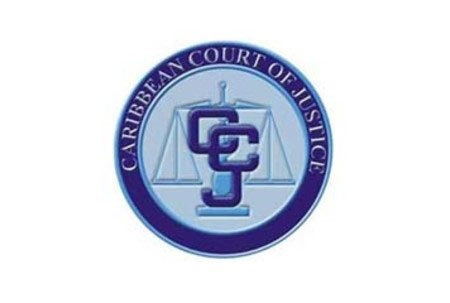The much anticipated decision of the Caribbean Court of Justice (CCJ) on the validity of the December 21, 2018 motion of no confidence is tentatively set for June 18 at 10 am, according to information from the court.
Lawyers in the case were yesterday notified of the time and a decision on the challenge to the appointment of GECOM Chairman Retired Justice James Patterson is also expected to be delivered on the same day.
If the government wins the no confidence case it means that it will serve out its full five-year term. If the opposition wins the case then all eyes will be on the consequential orders that the CCJ will issue. It is possible if the court rules for the opposition that it will say that general elections will have to be held in the shortest possible span in keeping with the constitutional edict accompanying a successful no confidence motion. Article 106 (7) requires elections to be held within three months of the passage of the motion or such longer period as granted by not less than two-thirds of the votes of all elected members of the National Assembly.
While initially recognizing the outcome of the motion of no confidence on the night of December 21st 2018, the APNU+AFC government decided to challenge it but lost its case before Chief Justice Roxane George in the High Court. However by a split decision in the Court of Appeal it had a ruling made in its favour which stated that the motion of no confidence needed 34 votes to be passed not 33. This controversial figure will be one of the key points ruled on by the court in addition to the validity of the vote of former APNU+AFC MP Charrandass Persaud who was a dual citizen at the time of the vote.
The orders of the court could be further complicated if it rules that Justice Patterson’s appointment was illegal. In such a circumstance, the court would be faced with having to provide directions to President David Granger and Opposition Leader Bharrat Jagdeo on the way forward.
The CCJ began hearing the no-confidence case on May 9th and heard the GECOM case a day earlier.
The three challenges to the no confidence motion are Christopher Ram against the Attorney General (AG), the Leader of the Opposition Jagdeo and Minister of State Joseph Harmon; Jagdeo against the AG, Speaker of the National Assembly Dr Barton Scotland and Harmon; and Persaud against Compton Herbert Reid, Dr Scotland, Jagdeo and Harmon.
Previously underscoring what he described as the importance of GECOM in the proceedings involving the no-confidence motion, President of the court, Justice Adrian Saunders had ordered that the entity be added as a party. In the same vein, the court also ordered that Justice Patterson be added as a party to the appeal contesting his appointment.
The no-confidence motion, sponsored by Jagdeo, was declared passed by Speaker Dr Scotland following a vote in its favour by then APNU+AFC parliamentarian Persaud on the night of December 21st.
Following a challenge by government in the High Court, Chief Justice (Ag) George found that even though Persaud was made a parliamentarian in violation of the Constitution, his vote was valid and that the December 21st no-confidence motion against the APNU+AFC government was validly passed with the votes of 33 elected members of the 65-member Assembly. She has also ruled that the passage of the motion should have triggered the immediate resignation of the Cabinet.
The Guyana Court of Appeal, by a majority decision, on March 22nd overturned the Chief Justice’s ruling, saying that the correct mathematical formula for finding the “absolute” majority was not used.
While Chancellor Yonette Cummings-Edwards (Ag) and Justice of Appeal Dawn Gregory agreed that 34 votes were required for the motion to be carried, Justice of Appeal Rishi Persaud dissented.
The matter regarding Patterson’s appointment stems from an application filed by PPP executive Secretary Zulfikar Mustapha for urgent hearing, which the CCJ also granted.
Handing down its ruling in October last year, the local appellate court upheld the legality of President Granger’s unilateral appointment of Justice Patterson, as Chairman of GECOM, saying that he did not act unreasonably in doing so.
The court disagreed with arguments advanced by Mustapha’s attorney that President Granger’s resort to the constitutional proviso in Article 161 (2) for the unilateral appointment of Patterson was unlawfully invoked and resultantly dismissed his appeal of a previous ruling of Justice George.
Mustapha is arguing, among other things, that the decision of the Guyana Court of Appeal failed to give effect to the “letter and spirit” of the constitution.





